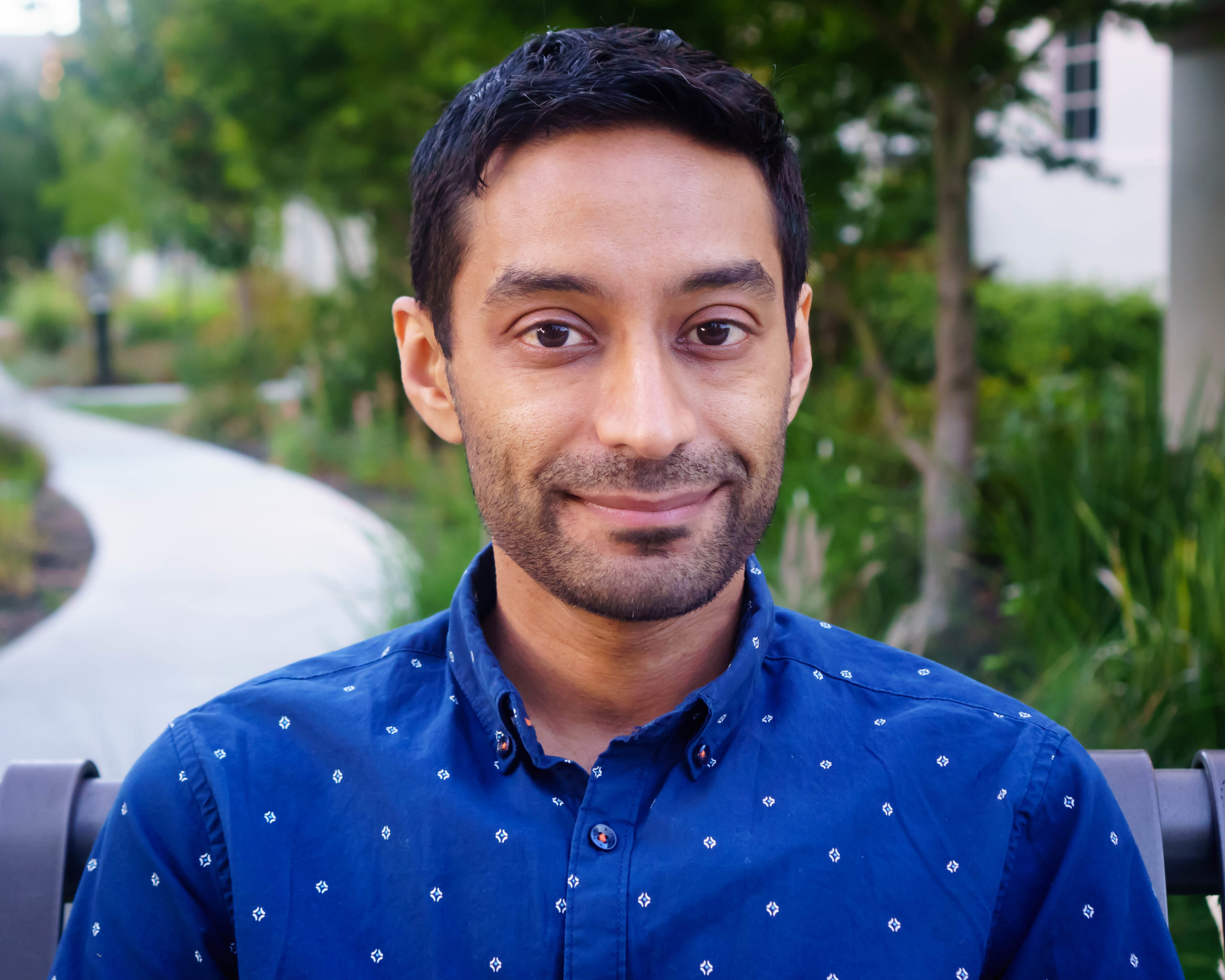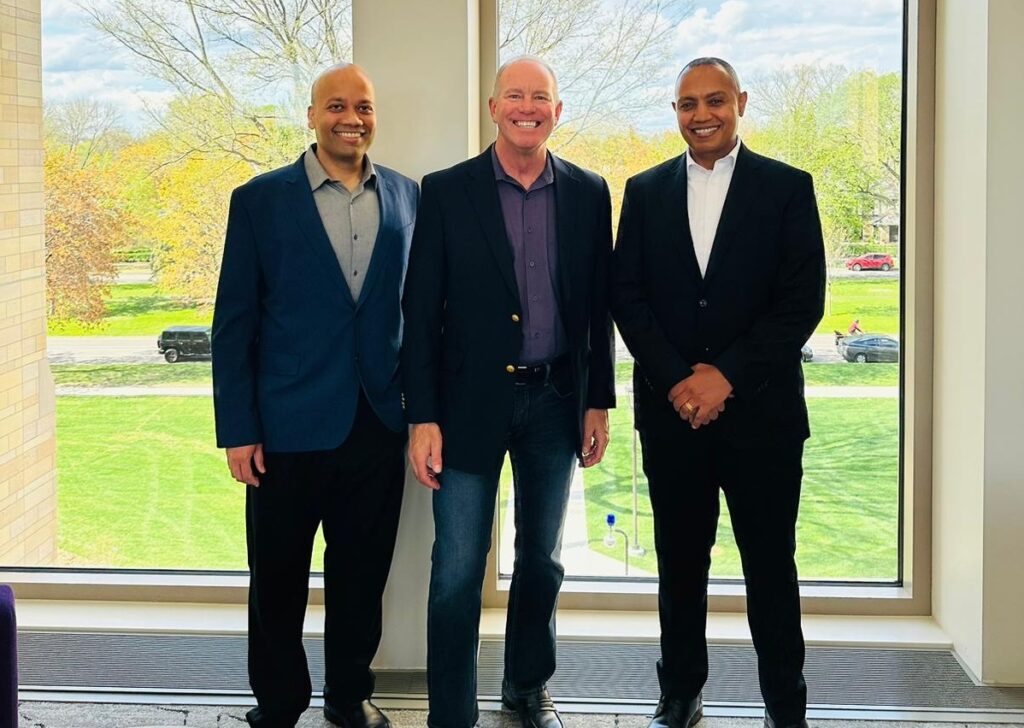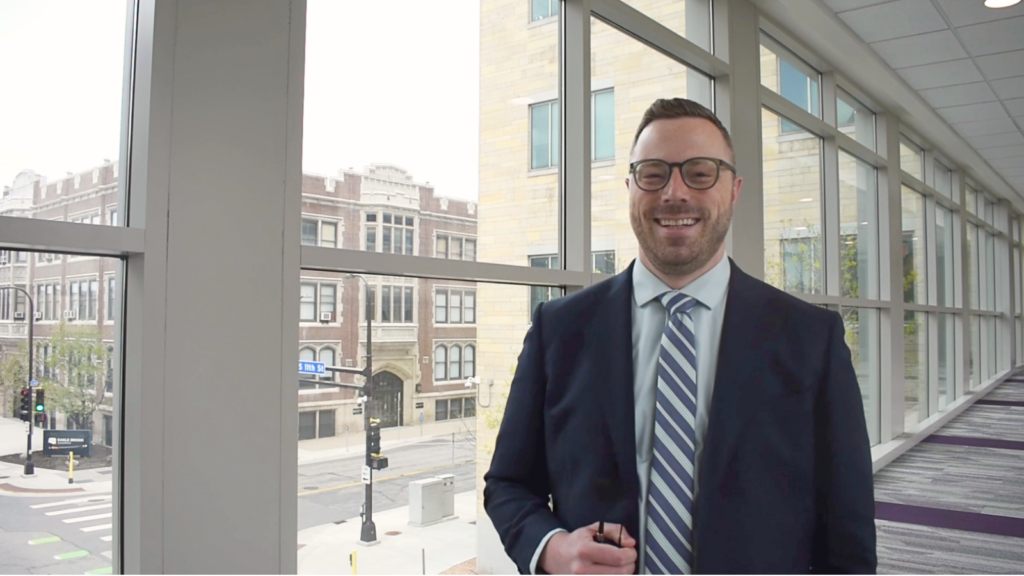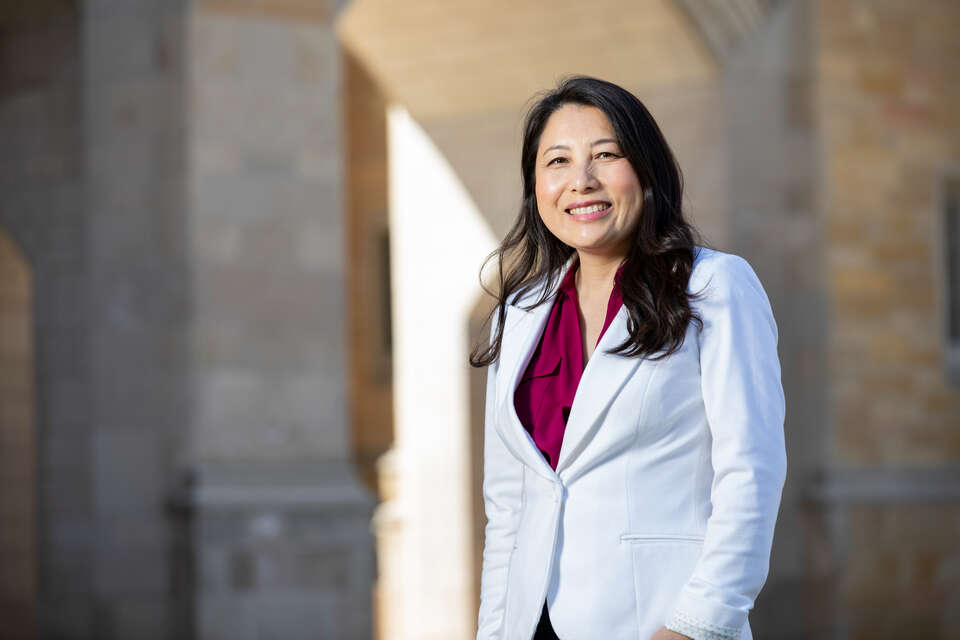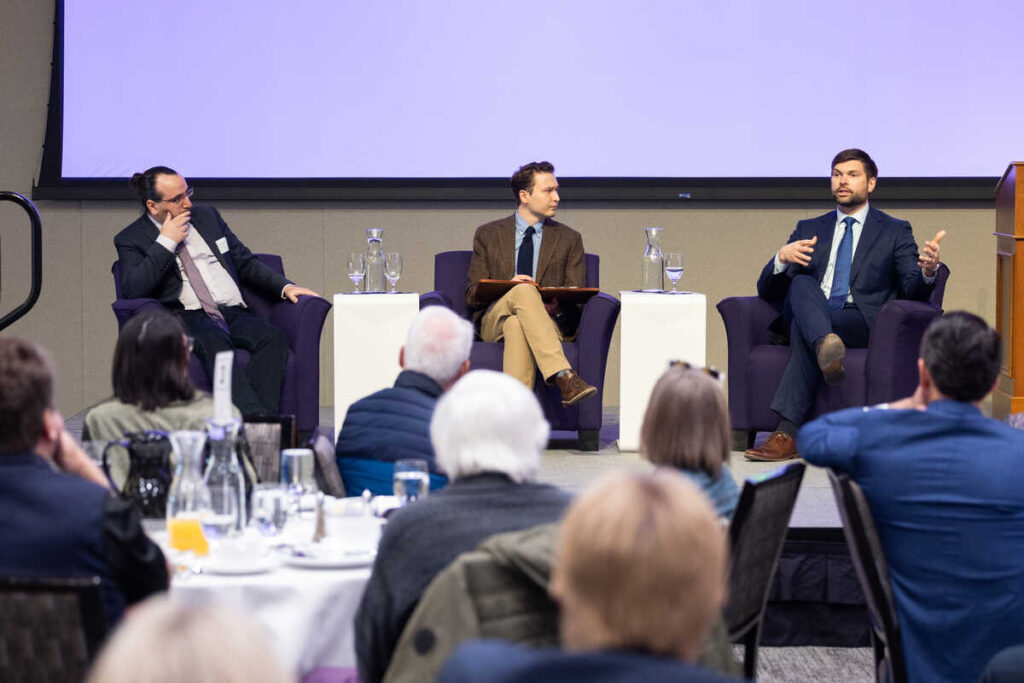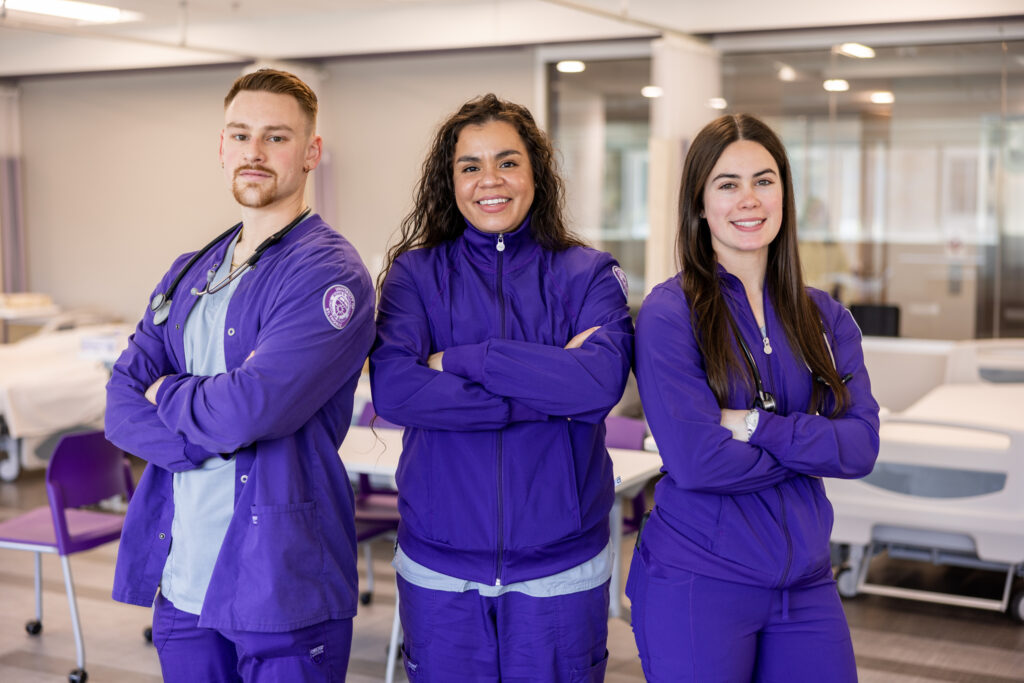Farhad Manjoo, op-ed columnist for The New York Times, will be the keynote speaker at this year's Opus College of Business Stakeholder Dialogue on May 2. The Newsroom recently connected with him to discuss ethics in a digital technology era, "alternative facts," Bob Dylan and more.
1. What can people expect from your Stakeholder Dialogue talk on May 2?
I spend a lot of my time thinking and writing about how technology is changing society. I'm interested not just in how it's changing the world physically and politically, but also in more abstract and less obvious ways – for instance, how technology is altering our social and ethical framework.
2. What ethical issues with technology are happening today, and what ethical issues do you see on the horizon?
The biggest ethical questions have to do with power. Smartphones and social networks have altered power dynamics; they've given a handful of individuals, like leaders of tech companies, huge influence over much of their users' lives. But how should the tech companies use that power? Whose ethical framework should they follow? These are the questions at the center of the biggest debates in tech: How should tech companies strike a balance between free speech and privacy, or free speech and offense? How should artificial intelligence systems make decisions? Whose ethics should they follow? How should we balance the benefits of tech progress against the needs of those who will be displaced by it in the short run?
3. Tell us about career journey. What advice do you have for people aspiring to write for The New York Times?
The honest answer is work hard and be lucky. I've had a tremendous amount of good fortune in my life; my career would not have been possible if it weren't for certain lucky breaks, like my parents deciding to emigrate from South Africa to the United States, and my happening to realize, at an early age, that I enjoyed writing and wanted to do it for the rest of my life. But also: Understand and appreciate the luck you have and make the most of it. Set a north star and work every day toward reaching it.
4. With your 2008 book True Enough, you accurately predicted a world of “alternative facts.” How does working for an organization dubbed “fake news” by our president impact your day-to-day work?
Being right about something terrible is the worst prize. But to the issue of Trump vs. The Times: It feels good to work at a place determined to investigate matters of fact in an otherwise fact-less age. It feels pure.
5. You’re working on a book about Amazon, Apple, Facebook, Google and Microsoft. What can readers expect from your upcoming book?
I think most people underestimate the power of big tech companies. I'd like to illuminate that power.
6. What advice do you have for people aiming to not have technology and social media take over their lives?
This is a difficult question to answer, because I wonder about the premise itself. I don't think "limiting technology" is the best goal. Instead I think people should investigate – as a matter of self-reflection – whether certain technologies are playing a positive or negative role in their lives. Honestly ask yourself: Is Facebook helping me today? Is this tweet going to make the world better? Then live according to those answers.
7. What advice do you give your children about using technology appropriately?
I try to find a balance. I don't want them to live tech-free; I think understanding and appreciating the power of tech is a key skill in the modern world. But I also want them to fear the consequences of tech. It's a daily balancing act.
8. I see from your Twitter cover image that you’re a Bob Dylan fan. Which Bob Dylan-related sites do you plan on visiting while you’re in his home state?
Unfortunately not this time. But I'm happy to take any recommendations for a future trip.
9. Is there anything else you would like to add?
Nothing except I'm honored to have been ask to speak, and looking forward to it greatly.
